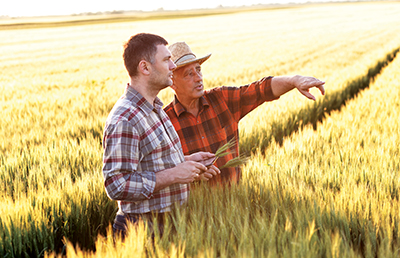Safe Harbor Still Not Worth Much

The IRS had issued a proposed regulation on January 18, 2019 regarding a safe harbor election that taxpayers could use to cause their rental activities. Yesterday, the IRS released Revenue Procedure 2019-38 that finalized this proposed regulation.
The IRS made some tweaks to the proposal, however, the final result is that most farmers will continue not to rely on the safe harbor. Here are the requirements (sorry about the length):
(B) For rental real estate enterprises that have been in existence less than four years, 250 or more hours of rental services are performed (as described in this revenue procedure) per year with respect to the rental real estate enterprise. For rental real estate enterprises that have been in existence for at least four years, in any three of the five consecutive taxable years that end with the taxable year, 250 or more hours of rental services are performed (as described in this revenue procedure) per year with respect to the rental real estate enterprise; and
(C) The taxpayer maintains contemporaneous records, including time reports, logs, or similar documents, regarding the following: (i) hours of all services performed; (ii) description of all services performed; (iii) dates on which such services were performed; and (iv) who performed the services. If services with respect to the rental real estate enterprise are performed by employees or independent contractors, the taxpayer may provide a description of the rental services performed by such employee or independent contractor, the amount of time such employee or independent contractor generally spends performing such services for the enterprise, and time, wage, or payment records for such employee or independent contractor. Such records are to be made available for inspection at the request of the IRS.
(D) The taxpayer or RPE attaches a statement to a timely filed original return (or an amended return for the 2018 taxable year only) for each taxable year in which the taxpayer or RPE relies on the safe harbor. An individual or RPE with more than one rental real estate enterprise relying on this safe harbor may submit a single statement but the statement must list the required information separately for each rental real estate enterprise. The statement must include the following information: (1) A description (including the address and rental category) of all rental real estate properties that are included in each rental real estate enterprise; (2) A description (including the address and rental category) of rental real estate properties acquired and disposed of during the taxable year; and (3) A representation that the requirements of this revenue procedure have been satisfied.
Adding some maintenance requirements, etc. to your lease if the rent is not paid via common ownership could make it qualify as a trade or business for Section 199A.
One positive of the Revenue Procedure is that the IRS clarified that a Triple Net Lease requires a tenant to pay real estate taxes. Almost all cash farm leases therefore will not be considered a triple net lease, therefore, they would qualify for the Safe Harbor if you wish to meet all of those provisions.
Paul Neiffer is a certified public accountant and business advisor specializing in income taxation, accounting services, and succession planning for farmers and agribusiness processors. Paul is a principal with CliftonLarsonAllen in Walla Walla, Washington, as well as a regular speaker at national conferences and contributor at agweb.com. Raised on a farm in central Washington, he has been immersed in the ag industry his entire life, including the last 30 years professionally. Paul and his wife purchase an 180 acre ranch in 2016 and enjoy keeping it full of animals.

So how does this affect triple net leases paid from a C Corp? Do those rent payments paid by a farming C Corp to an individual owner who is also a C Corp shareholder qualify as 199A income for the individual?